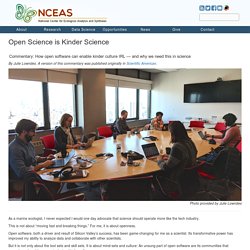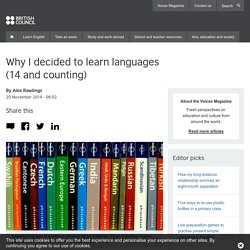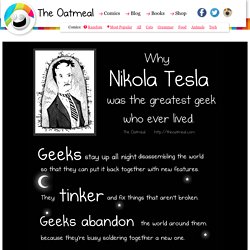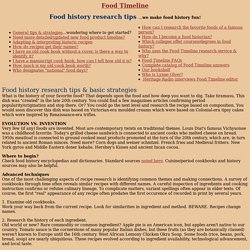

Open Science is Kinder Science. Commentary: How open software can enable kinder culture IRL — and why we need this in science By Julie Lowndes.

A version of this commentary was published originally in Scientific American. Photo provided by Julie Lowndes. National Center for Ecological Analysis and Synthesis. Sarah Jeanne Royer. Why Anti-Authoritarians are Diagnosed as Mentally Ill. (Note: Read Bruce Levine’s latest post: Anti-Authoritarians and Schizophrenia: Do Rebels Who Defy Treatment Do Better? In my career as a psychologist, I have talked with hundreds of people previously diagnosed by other professionals with oppositional defiant disorder, attention deficit hyperactive disorder, anxiety disorder and other psychiatric illnesses, and I am struck by (1) how many of those diagnosed are essentially anti-authoritarians, and (2) how those professionals who have diagnosed them are not. Anti-authoritarians question whether an authority is a legitimate one before taking that authority seriously. Evaluating the legitimacy of authorities includes assessing whether or not authorities actually know what they are talking about, are honest, and care about those people who are respecting their authority.
Some activists lament how few anti-authoritarians there appear to be in the United States. Why Mental Health Professionals Diagnose Anti-Authoritarians with Mental Illness. Why I decided to learn languages (14 and counting) Alex Rawlings, who won a competition to find Britain's most multi-lingual student in 2011, explains why learning foreign languages is so rewarding, and how his school helped set him on this path.

The UK, my home country, can be a place of great contradictions. We’re famous for being reluctant to speak other languages and indignant about whether they even have a use. And yet, we live in an environment that is brimming with multiple languages and opportunities to speak them. Growing up in the UK surrounded by languages As a child, every bus journey inevitably took me on a quick whirl around the planet, with conversations in Spanish, Cantonese, Icelandic, and Urdu going on all around. Looking at Photographs of Marilyn Monroe Reading. February 25, 2019 There are more photographs of Marilyn Monroe reading than there are of her naked.

Almost always, these images are captioned with a kind of perky can-you-believe-it paternalism. “Those books aren’t just for show!” “Despite her reputation as a blonde…” The public seems permanently surprised at her literacy, even when we are making a show of not being surprised. Just as Freud said every negative statement includes the wish of its positive, every Instagram post that insists hotness does not prevent intellect only reasserts the unreliability of its claim. Beauty is a lot easier to prove than intelligence. In 1999, Christie’s auctioned off nearly 400 books from Marilyn’s personal library, a roster of classics ranging from Proust to Hemingway, which publicly solidified her intellectual identity and provided hard evidence against all those who claimed the plentitude of reading photographs were staged.1 But staged, of course, they were.
20 Most Influential Women Intellectuals. Women intellectuals have been playing an increasingly important role in shaping thought and culture.

Here is SuperScholar’s list of the 20 most influential living women intellectuals. Margaret Atwood (1939– ), an iconic Canadian feminist novelist, expresses both the “goddess” and “activist” modes of the mid-twentieth century movement, via a confrontational style that gained converts by avoiding both violence and eccentricity. Aung San Suu Kyi (1945– ), a Nobel Peace Prize laureate and scholar living under house arrest and many other restrictions imposed by her native Burma’s (Myanmar’s) military rulers, leads a popular political movement and party whose non-violence and civil disobedience offer hope for eventual democratic government. Karen Armstrong (1944– ), formerly a Roman Catholic nun in her native Britain and widely considered a force for ecumenism, now considers herself a “creative monotheist,” whose many books offer iconoclasm regarding major monotheist religions. Why Nikola Tesla was the greatest geek who ever lived.
Additional notes from the author: If you want to learn more about Tesla, I highly recommend reading Tesla: Man Out of Time Also, this Badass of the week by Ben Thompson is what originally inspired me to write a comic about Tesla.

Ben's also got a book out which is packed full of awesome. There's an old movie from the 80s on Netflix Instant Queue right now about Tesla: The Secret of Nikola Tesla. It's corny and full of bad acting, but it paints a fairly accurate depiction of his life. The drunk history of Tesla is quite awesome, too. 20 Most Influential Scientists Alive Today. Scientists are perhaps the most influential people in the world today. They are responsible not only for the great practical advances in medicine and technology, but they also give us a deep understanding of what the world is and how it works. Their role in shaping the worldview of our culture is unrivaled. Below is SuperScholar’s list of the twenty living scientists that we regard as having most profoundly influenced our world. 1. Timothy John “Tim” Berners-Lee, who invented the World Wide Web by being the first to successfully implement the transfer protocols on which the Web depends. 2. 3. 4. 5. 6. 7. 8. 9.
Did the Early Middle Ages Really Exist? Researching a food history question? Food Timeline Food history research tips...we make food history fun!

Food history research tips & basic strategies What is the history of your favorite food? That depends upon the food and how deep you want to dig. Take tiramasu. This dish was "created" in the late 20th century. EVOLUTION VS. Where to begin? Erudite. Erudite Excellence. Evolving. Plenitude. SCIENCE Wise. Vigor. Curation MM.